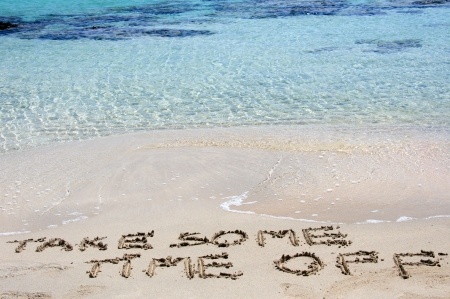Why and How to take a Month Off
 It’s an elusive dream twinkling in an employee’s eyes: what if I could take an entire month off? The lure is obvious: the chance to truly unwind, to recharge your creativity, and to visit faraway places you can’t reach on a week-long jaunt. For many Americans, especially, it’s just not possible because of draconian vacation policies (my first job out of college gave me two weeks a year, which I had to “earn” over time, so I virtually couldn’t take any time off for an entire year). But for others — those with more generous employers, longtime employees who have saved up their days or entrepreneurs calling their own shots — the hesitation is internal: What would happen to my work while I’m gone? Wouldn’t I alienate my clients? What if there’s an emergency? How can I afford to be gone that long?
It’s an elusive dream twinkling in an employee’s eyes: what if I could take an entire month off? The lure is obvious: the chance to truly unwind, to recharge your creativity, and to visit faraway places you can’t reach on a week-long jaunt. For many Americans, especially, it’s just not possible because of draconian vacation policies (my first job out of college gave me two weeks a year, which I had to “earn” over time, so I virtually couldn’t take any time off for an entire year). But for others — those with more generous employers, longtime employees who have saved up their days or entrepreneurs calling their own shots — the hesitation is internal: What would happen to my work while I’m gone? Wouldn’t I alienate my clients? What if there’s an emergency? How can I afford to be gone that long?
Those are my excuses, too, and the reason my longest vacation since the end of graduate school — well over a decade ago — had only lasted two weeks. But last fall, I changed all that and spent a month off between jobs. No question: my “mega break” entailed sacrifices and a planning. But it also afforded me an opportunity to really unwind Here’s what I learned about how to take a month off:
Plan far in advance. When most people say that taking a month off just isn’t possible, they’re telling the truth: it’s not feasible in the immediate future. There are too many work commitments and other obligations to fulfill. But all that drops away if you’re planning really far in advance.
Decide how reachable you want to be. This is a crucial question to decide early on. It’s not much of a vacation if your clients are pinging you every day — but how far do you want to go in the other direction? Will you check email or voicemail at all while you’re gone? Sometimes it’s a matter of logistics —, but that won’t be the case if you’re trekking through the Amazon.
You’re going to lose money — deal with it. This is perhaps the most painful part. Everyone knows breaks & vacations are expensive; but, given human psychology and our innate aversion to loss, the really tough stuff is the earnings you forfeit. If money’s your entire frame, let’s face it: you’d never go anywhere because it’s a lot more cost effective to stay home and work. It’s bitter medicine, but if you truly believe that life is about experience, you’ll have to swallow.
Give yourself permission to wander. I thought I might have time during my time off to write up a new proposal for some ad hoc work. Didn’t happen. I thought I might pen a few blogs about my love of college football. That didn’t happen either. In fact, it was all I could do to check Facebook now and again. But in my month, I read a dozen books. Two days after I started working again, I felt refreshed motivated and energetic. Not bad for starting a new job on the right foot.
